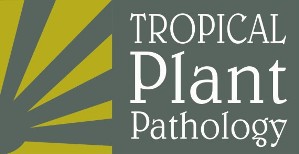Few studies have been conducted with clubroot disease in Brazil, caused by Plasmodiophora brassicae. Tests on severity of disease using different populations were carried out in brassica species (cauliflower, susceptible Chinese cabbage, resistant Chinese cabbage, broccoli, and cabbage). P. brassicae populations were obtained from infected roots in several commercial production regions in Brazil. Severity tests were conducted under greenhouse conditions (25±2ºC) with inoculations (2 mL) of spore suspension at concentration of 10(7) spores. mL-1, applied in the collar root of each plant. Disease evaluations were performed 35 days after inoculation. DNA extraction and PCR-RAPD analyses for these populations were conducted to compare genetic traits. The populations obtained from the regions of Carandaí MG and Colombo PR was more aggressive, and cause symptoms even in cultivars considered resistant. However, no specific genetic pattern was observed as to the place of origin or aggressiveness.
clubroot; PCR; soilborne pathogen; Brassicaceae









